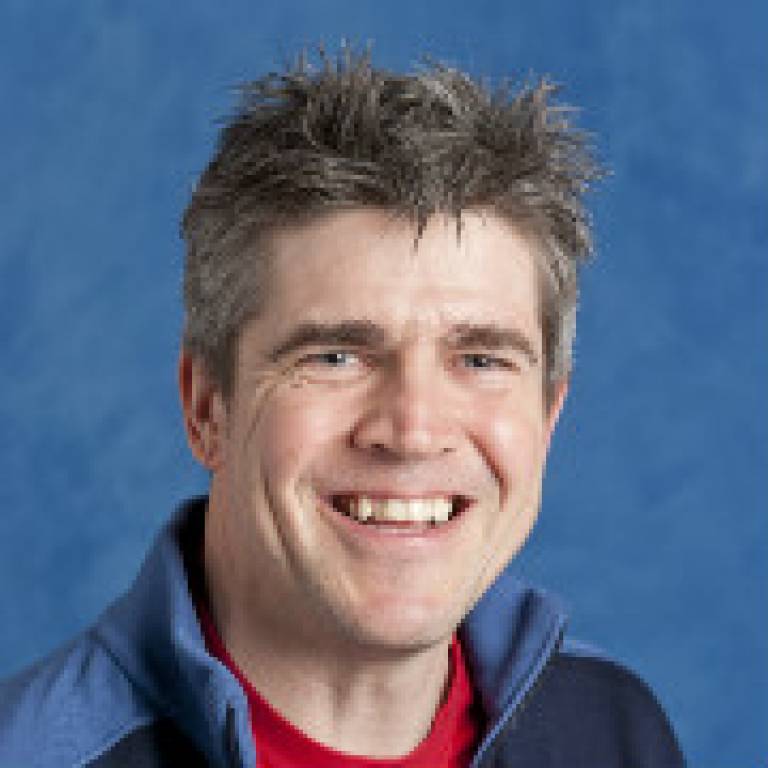Spotlight on Vincent Walsh
22 September 2011
This week the spotlight is on Professor Vincent Walsh, Institute of Cognitive Neuroscience.

What is your role and what does it involve?
On the new BASc degree, I'm co-ordinating the Health and Environment
Pathway. This involves trying to get options in place for students to take
courses offered by Anthropology, Psychology, Pharmacology, Geography, Biology,
Statistics and more.
The biggest challenge at the moment (well, the biggest
challenge that is more interesting than the timetabling of the degree modules)
is to get an appreciation of what these subjects offer so that I can
effectively mentor the students to make the best choices for their degree.
Another challenge is to find a new language so that we can talk to schools,
students and parents. Advocacy for the new degree is important and how we do it
now may shape its character in others' eyes for some time to come.
I think we'll attract the brightest students. To even consider applying for the BASc, the students must have thought beyond which subjects they are doing well at in school. I think this means we'll get intellectually adventurous students who want to take on new ways of thinking.
How long have you been at UCL and what was your previous role?
I've been here for nine years. I was previously in Experimental Psychology in Oxford. I held a Royal Society URF and transferred the final part to the Institute of Cognitive Neuroscience. In Oxford, I built my first research group and, in transferring to London, I grew the group and broadened my research into new areas.
What working achievement or initiative are you most proud of?
My PhD students and post docs. The most satisfying thing about
mentoring people is helping to them find their own intellectual voice (I don't
care how that sounds).
Some research groups focus on the same thing and the
PhDs and post docs have to follow the party line - you could write the PhD for
them on their first day. It's good for the PI but very limiting for the PhDs
and post docs.
I like supervising PhDs that are on the edge or even outside my
supposed expertise. I've supervised great PhDs on music, synaesthesia, face
perception, sleep… and other things on which I'm not an expert. It's about the
student and their intellectual ownership of their projects, not about producing
copies of myself.
Most of my ex students and post docs are now in good positions and working on things that you cannot trace to my influence. That means I helped to produce independent thinkers. I've never been enamoured of undergraduate teaching but the new BASc will give me the chance to help undergraduates become independent thinkers too. I think that it's exactly the right degree to produce higher quality in this regard.
What is your life like outside UCL?
How much detail can you take? I like my job but I'm not a
pretend workaholic. People sometimes think I am a workaholic because my phone
and my emails ping at me day and night. But having 24-hour access to email
allows me to manage my time more effectively.
London is such a great place to live. I climb regularly (and now need to learn to ski) and I'm addicted to music. I probably go to more thanr 100 concerts a year and I play with several bands. I do a lot of public lectures on science or the culture of science too.
 Close
Close

